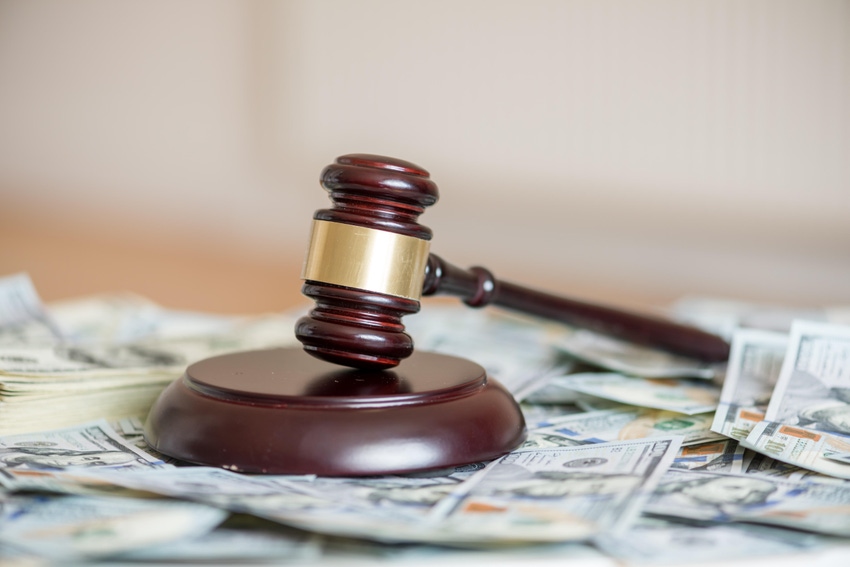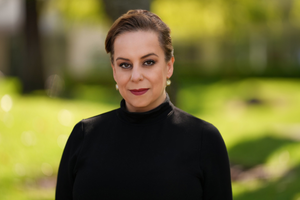FCC urged to reconsider USF stance in net neutrality order
Trade groups including NTCA and Incompas are pushing the FCC to amend its draft net neutrality order to essentially delay, not forbear, applying USF contribution requirements to broadband providers.

With the FCC's vote on net neutrality coming up this Thursday, April 25, some industry groups are making a final push for a change to the language in order to leave open the possibility of meaningful Universal Service Fund (USF) reform at the agency level.
Specifically, representatives at industry trade groups NTCA–The Rural Broadband Association, Incompas and CCIA met with members of the FCC in the last week to urge the Commission not to forbear applying USF to broadband Internet access providers (BIAS).
In essence, various USF reform advocates view assessing broadband revenue as one key way to address the fund's ballooning contribution factor, or the percentage of revenue needed to support the USF's programs.
However, the FCC in its draft order chose to forbear applying USF contribution requirements to broadband providers, noting that the "record does not convincingly show that imposing universal service contribution requirements on BIAS is necessary at this time." The order will otherwise restore the FCC's oversight over broadband companies under Title II of the Communications Act.
While the draft order also notes the FCC could revisit the USF/BIAS decision in the future, representatives from NTCA and Incompas stress that forbearing here could close the door on the issue indefinitely. And while the draft order also points to a group in Congress working toward addressing the USF issue through legislation, NTCA and Incompas contend that it's unwise for the FCC to abdicate its own authority here, given the unlikelihood that Congress will move on this issue soon.
Moreover, while the FCC also chose to apply the same forbearance in the 2015 net neutrality order, as Incompas points out, the USF contribution factor has increased more than two-fold since that year (16.8% versus 32.8% today). And that's without folding the Affordable Connectivity Program (ACP) into USF, which advocates also see as the future of that program, should it survive at all.
"We want to just ensure that there's a pathway for the Commission to address this issue in the future without facing a lot of legal uncertainty and opposition to a forbearance proceeding, which is what they would have to go through if they were to forbear here as the draft order indicates," said Angie Kronenberg, president of Incompas, in a conversation with Light Reading. "And we think that the record also just really shows a lot of opposition to forbearance at the time."
Delay, don't forbear
To that end, Incompas is supportive of language drafted by NTCA–The Rural Broadband Association, included in a public filing last week, that would allow the FCC to waive the requirement for broadband providers to contribute until the Commission makes a decision.
In part, the NTCA-revised draft would change the language to say that "further deliberation is necessary and in the public interest before either applying or forbearing from imposing new universal service contribution requirements on BIAS service" and that the FCC will "continue to consider appropriate reforms to the contribution methodology ... and we intend to issue a further notice of proposed rulemaking to refresh the record in that proceeding."
That would replace the existing FCC language, which reads: "We conclude that forbearing from imposing new universal service contribution requirements on BIAS service is in the public interest."
On the public interest front, the FCC is referring to data it cites suggesting that assessing broadband revenues for USF would cause consumer bills to increase. However, other data, commissioned by Incompas and assembled by the Brattle Group last year, suggests that consumers would save money, with broadband-only households seeing a $2.22 monthly increase.
To that end, more information is needed on the matter – but is unlikely to be gathered if the FCC moves forward with forbearance rather than opening a proceeding considering the issue.
"Forbearance has a sort of sense of somewhat permanence to it. It's a hard thing to go back on," said Mike Romano, EVP of NTCA, in an interview with Light Reading.
"What we would hope is that – to get to the same place, but without tying its own hands behind its back in the future – the Commission would take a more reasonable path, which is to waive the application of the contribution rule as it considers these questions further. I think that really would be a better path procedurally for them, a better path legally for them and a better path practically for them."
Everyone v. FCC
On the legal front, the net neutrality/Title II order is almost* guaranteed to end up in court with myriad parties who are unhappy about it. [Ed. note: *Almost, only because there's always a chance the world ends before Thursday.]
Will groups like NTCA and Incompas, dissatisfied with the forbearance decision, be among them?
Representatives from both said they remain undecided, though they would have standing.
"We've not made any decisions about litigation," said Incompas' Kronenberg.
"We haven't decided yet," added NTCA's Romano, noting the association's limited resources and participation in other proceedings. "But I do think they've opened themselves up, because there are several problems with the forbearance standard."
The FCC is set to vote on its latest draft order on net neutrality and Title II at its open meeting this Thursday, April 25. With three Democrats on the Commission, the draft order, amended or not, is expected to pass on party lines.
About the Author(s)
You May Also Like












